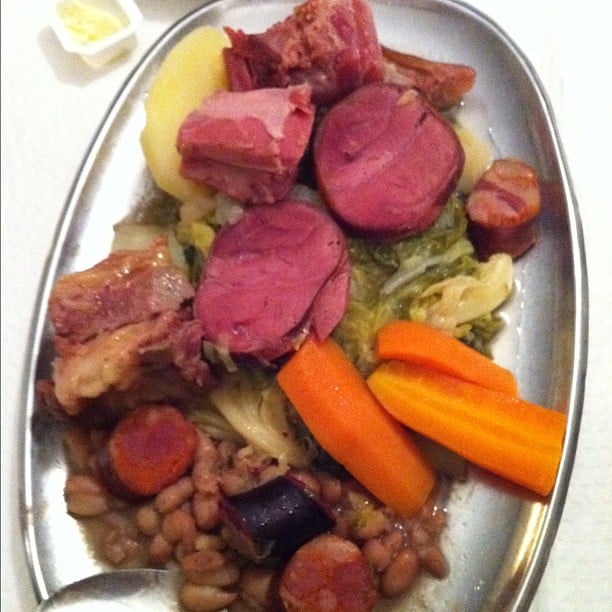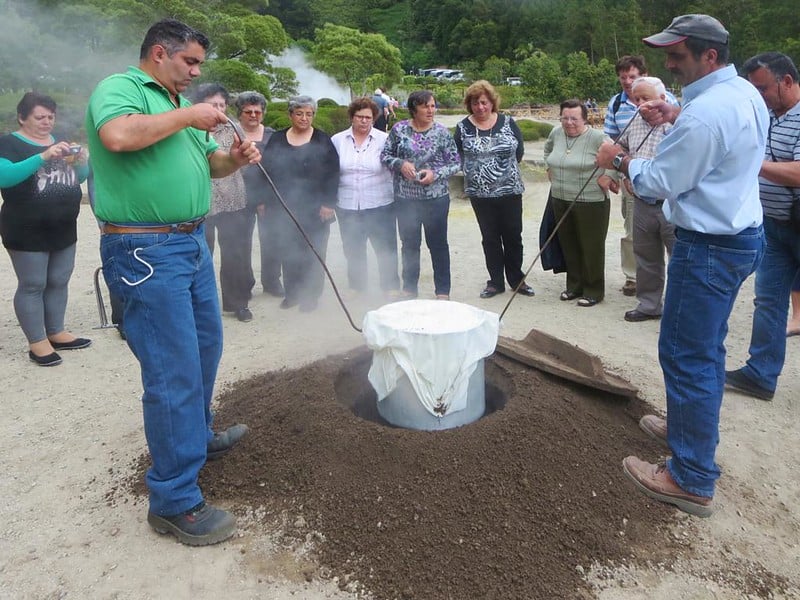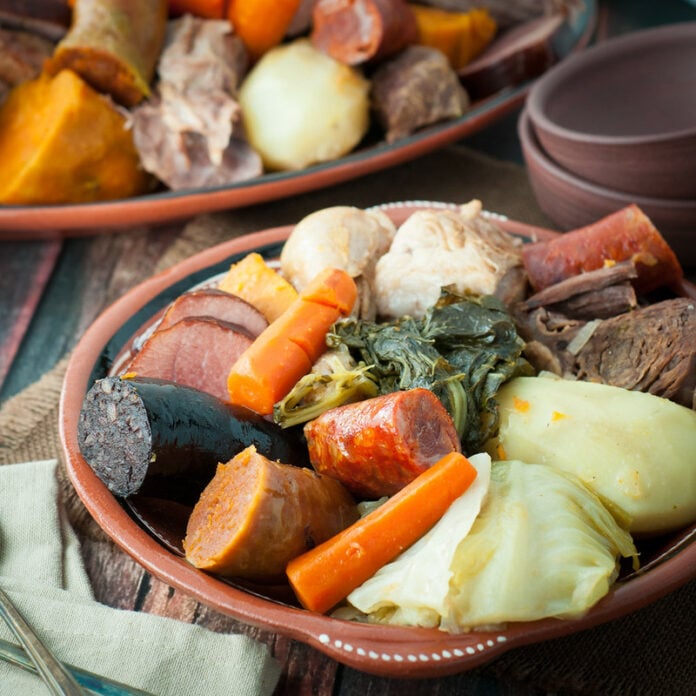In Portugal, family traditions are the heartbeat of the nation’s culture, deeply ingrained in the fabric of everyday life. Among these traditions, the ritual of sharing a Sunday meal is paramount. At the heart of this cherished practice is the beloved dish known as “cozido.” This hearty, comforting meal embodies the essence of Portuguese culinary tradition and family values, making it a cornerstone of Sunday gatherings. Let’s delve into what makes this dish so special, and how it brings families together.
A Symphony of Flavors
Cozido, often referred to as “Cozido à Portuguesa,” is a traditional Portuguese stew that showcases the country’s rich culinary heritage. The dish is a hearty medley of meats, vegetables, and sausages, all simmered together to create a flavorful and aromatic experience. The word “cozido” itself means “boiled” in Portuguese, indicating the cooking method that melds these diverse ingredients into a harmonious blend.
Ingredients of Cozido
The ingredients of cozido can vary from region to region and from family to family, but there are some staples that are almost always present:
- Meats: Typically, a variety of meats are used, including beef, pork, and chicken. It’s common to find pork ribs, pork belly, and even pig’s ear and feet, which add a distinct richness to the broth.
- Sausages: Portuguese sausages like chouriço and morcela (blood sausage) are essential. These sausages provide a smoky and savory depth to the dish.
- Vegetables: A range of vegetables such as cabbage, potatoes, carrots, turnips, and chickpeas are added. These vegetables absorb the flavors of the meat and sausages, becoming tender and delicious.
- Seasonings: Bay leaves, garlic, onions, and peppercorns are common seasonings that enhance the overall flavor profile.
The preparation of cozido involves layering the meats and vegetables in a large pot, adding water, and allowing the mixture to cook slowly. This slow cooking process ensures that all the flavors meld together, creating a rich and satisfying dish.
The Sunday Ritual
In Portugal, Sunday is a day for family. It’s a day when the hustle and bustle of the week slows down, and families gather to share a meal and enjoy each other’s company. The tradition of preparing and eating cozido on Sundays is a testament to the importance of family and food in Portuguese culture.

A Labor of Love
The preparation of cozido often begins early in the morning. It’s not uncommon for several generations of a family to be involved in the process. The older members, often grandmothers, take charge of the kitchen, drawing on years of experience to ensure the dish is perfect.
The process starts with the careful selection of ingredients, which are often sourced from local markets. Freshness is key, and the quality of the ingredients can make all the difference. Once the ingredients are assembled, the meats are usually seasoned and sometimes marinated. Then, they are placed in a large pot, layered with vegetables and sausages, and covered with water.
As the cozido simmers, the aroma fills the house, creating an atmosphere of anticipation. The long cooking time allows for conversation and bonding. It’s a time for the family to catch up, share stories, and prepare for the meal together.

Gathering Around the Table
When the cozido is ready, the family gathers around the table, which is typically set with simple yet elegant tableware. The cozido is served in large, communal dishes, and everyone helps themselves. It’s a meal that encourages sharing and togetherness.
Eating cozido is more than just satisfying hunger; it’s a social experience. The table is filled with lively conversation, laughter, and the clinking of glasses. Wine, often locally produced, accompanies the meal, adding to the convivial atmosphere. The cozido is enjoyed slowly, with each bite savored and appreciated.
A Celebration of Heritage
For many Portuguese families, the tradition of eating cozido on Sundays is a way of preserving their heritage. It’s a link to the past, a way of honoring their ancestors and keeping their culinary traditions alive. The recipes for cozido are often passed down through generations, each family adding their own unique touches.
This tradition also highlights the Portuguese value of togetherness. In a world that is increasingly fast-paced and fragmented, the Sunday meal is a reminder of the importance of family, community, and the simple pleasures of life.
Variations Across Regions
While the basic concept of cozido remains the same, there are regional variations that add to the richness of the tradition. Each region in Portugal has its own take on the dish, reflecting local tastes and ingredients.
Cozido das Furnas
One of the most famous variations is “Cozido das Furnas,” which comes from the Azores, specifically the island of São Miguel. What makes this version unique is the way it’s cooked. The pot of cozido is buried in volcanic soil and cooked using natural geothermal heat. The result is a dish with a distinctive flavor, infused with the minerals from the volcanic steam.

Cozido à Portuguesa
On the mainland, “Cozido à Portuguesa” is the most common version. In the north, it might include more types of meat and sausages, while in the south, it may have a greater emphasis on vegetables and simpler preparations. Some families add rice or use different types of beans, showcasing the versatility of the dish.
The Modern Adaptation
In contemporary Portugal, while the essence of the tradition remains, there are some modern adaptations. Busy lifestyles mean that not every family can spend the entire morning preparing cozido. However, the spirit of the tradition is maintained, with many families choosing to prepare the dish in slow cookers or even enjoying it in local restaurants that serve traditional Portuguese cuisine.
Despite these adaptations, the core of the tradition remains the same: a focus on family, togetherness, and the enjoyment of good food. The cozido continues to be a symbol of Portuguese hospitality and the enduring importance of family meals.
More Than Just a Meal
Cozido is a dish that reflects the Portuguese culture and values of taking your time and making family a priority. It represents the joy of sharing a meal and the rich culinary heritage of Portugal. The tradition of eating cozido on Sundays is a beautiful example of how food can bring people together, creating lasting memories and strengthening family bonds.
In a world that often feels disconnected, the cozido is a reminder of the simple yet profound pleasures of life: good food, good company, and the love of family. As long as Portuguese families continue to gather around the table to share this beloved dish, the tradition of cozido will remain a cherished part of their cultural identity.


